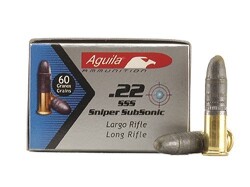Since I think the residential real estate market is bottoming out, and my family will soon need more space anyway, I recently began shopping for houses. Based on my reference post on this subject it won’t surprise people to learn that I have a low opinion of the real estate marketing cartel (a.k.a. “Realtors”).
Following my own advice I did not enlist a “buyer’s agent.” Instead I did my own searches through listings and, when I wanted to see a house, I contacted the seller’s agent directly and drove myself to the appointment.
Overall my experience with these “Realtors” continues to be dismal. Of the dozen or so licensed listing agents with whom I have interacted in the last few weeks at best only three struck me as professional and ethical. Many were incompetent, lacking basic knowledge of the houses they were contractually and ethically obligated to sell. Some were more interested in selling themselves to me than in selling the particular property they listed and in which I had expressed interest. And of course many, on learning I wasn’t being “represented” as a buyer, tried to convince me that I should let them be my “buyer’s agent.” After all, they explained, their “services” as my representative wouldn’t cost me a penny.
This argument, by licensed professionals, is not only unethical but should also be illegal: Traditional buyer’s agents are not free. They collect a substantial fee from the sellers of any house purchased by their client — usually 2.5%-3.5% of the selling price. This is known as a “co-op commission.” On a $1MM house a buyer’s agent expects to walk away with about $30k. As I asked some of these Realtors, “What could you possibly do as my representative that would be worth $30k?” It became a rhetorical question.
At best they run the same computer searches I do and contact the same listing agents I do. If I didn’t have a car I could probably get the listing agents to drive me to their showings. In fact, I consider it detrimental to have a house shown by someone other than the owner or listing agent. After all, a buyer’s agent typically doesn’t know any more about the house than I do from reading the listing, requesting copies of the floor plan, or walking through it. At least when the listing agent is showing it there is a presumption that they have studied the property and are prepared to answer questions that might be asked by a buyer. And when they don’t know the answer (as happens ridiculously often) at least I’m one person closer to the answer.
As I mentioned in my previous post, a buyer’s agent doesn’t even fully represent the interests of the buyer. I want to find a house that most closely matches my objectives at the best possible price. A buyer’s agent wants me to buy a house with as little work on their part as possible. Their interest is in getting me to make a purchase producing the biggest buyer’s co-op, so not only would they prefer I pay as much as possible, but they would also prefer I didn’t see houses with reduced commissions.
So there are already plenty of principled reasons to avoid buyer agents. But the money is the biggest: When I submit an offer on a house and make it clear that I am waiving the “buyer co-op,” it’s like adding 3% to my bid. Some Realtors may quibble that they contract with sellers for a fixed commission rate, and if the buyer doesn’t present a licensed agent to claim it then they get to keep the full commission for themselves. Hopefully neither sellers nor courts will countenance such an anticompetitive gambit. Though if push comes to shove, I can confirm that there is no shortage of licensed Realtors eager to list my old house. It won’t be hard to find one who will agree to be my buyer’s representative at settlement and refund their commission to me.
[Update: How to access MLS if you’re not a Realtor. Several comments note that only Realtors have access to the MLS, and without that you can’t effectively do your own searches. The reality is that you can get full access to listings with one more step: In addition to trulia.com and homefinder.com, most real estate agency web sites allow you to run searches against the entire MLS. None of them reliably come back with the complete MLS listing, but they will tell you which agency has the listing. I have found that if you then go to that agency’s web site and search for the property they will provide the complete listing information, including contact info for the listing agent and often other details.]
